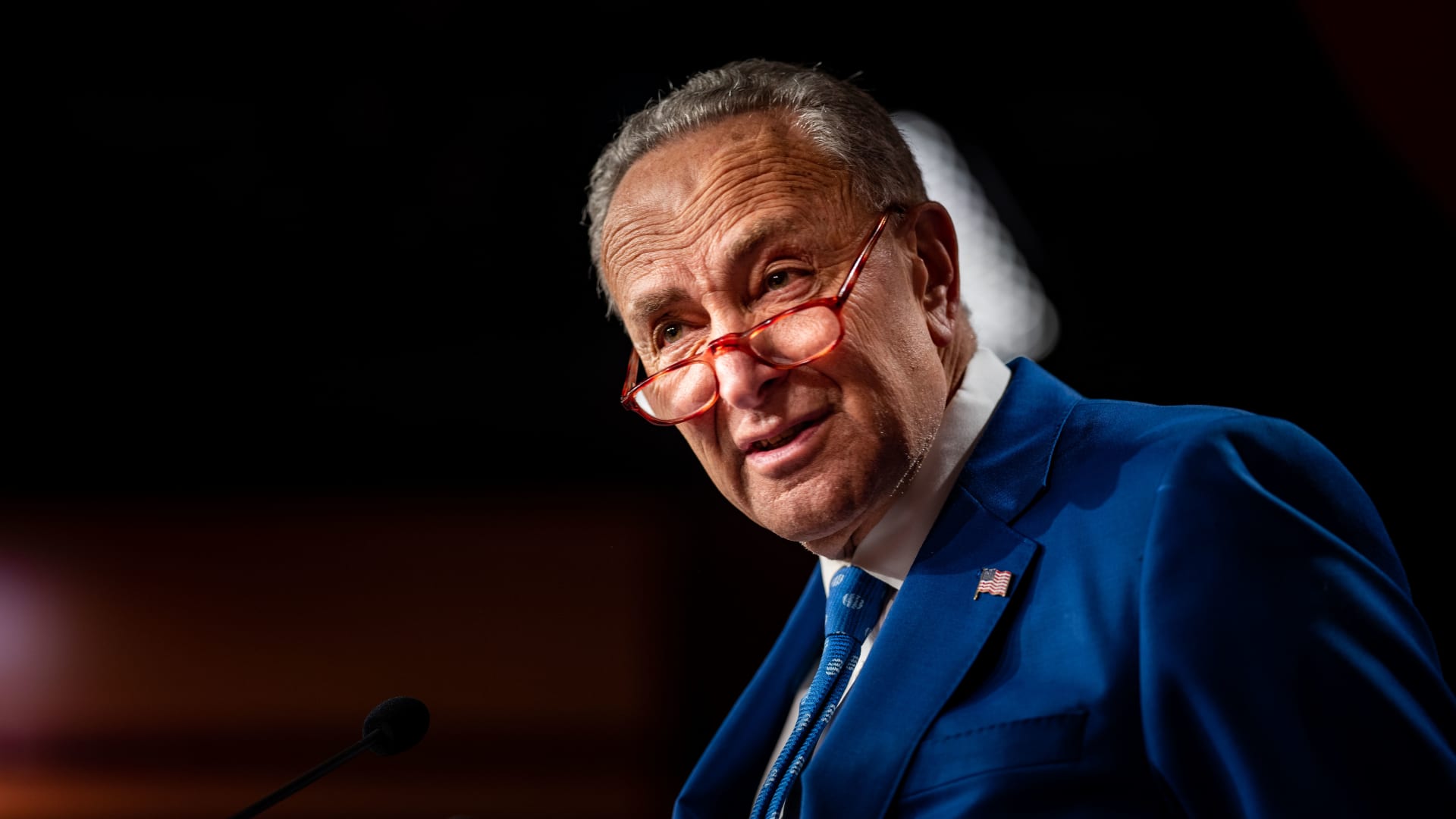
Senate Majority Leader Chuck Schumer, D-N.Y., discusses the Inflation Reduction Act on Aug. 7, 2022 in Washington, D.C.
Kent Nishimura | Los Angeles Times | Getty Images
Senate Democrats curtailed a tax break for certain pass-through businesses as part of the Inflation Reduction Act passed Sunday.
A pass-through or flow-through business is one that reports its income on the tax returns of its owners. That income is taxed at their individual income tax rates. Examples of pass-throughs include sole proprietorships, some limited liability companies, partnerships and S-corporations.
Democrats’ legislation — a package of health-care, tax and historic climate-related measures — limits the ability of pass-throughs to use big paper losses to write off costs like salaries and interest, according to tax experts.
More from Personal Finance:
How carried interest works and how it benefits high-income taxpayers
Inflation Reduction Act aims to trim insulin costs for Medicare users
Reconciliation bill includes nearly $80 billion for IRS
That limit — called the Limitation on Excess Business Losses — is currently already in place. It was scheduled to end starting in 2027, but the new bill would extend the restriction for an additional two years. That extension wasn’t in Senate Democrats’ initial version of the legislation, but it was added during the subsequent negotiation and amendment process.
The Inflation Reduction Act passed along party lines and now heads to the House.
Wealthy real estate owners likely impacted most
Republicans originally enacted the pass-through limitation in the 2017 tax law known as the Tax Cuts and Jobs Act.
Specifically, the law disallowed pass-through owners from using business losses exceeding $250,000 to offset non-business income. That dollar threshold is for single taxpayers; the law set a $500,000 cap for a married couple filing a joint tax return.
Those caps are higher in 2022 due to an inflation adjustment: $270,000 and $540,000, respectively.
“The business losses can only offset other business income, not salaries and interest and investment gains,” Steve Rosenthal, a senior fellow at the Urban-Brookings Tax Policy Center, said of the measure.
The provisions hurt “rich guys” who were using business losses to take tax write-offs against bonuses, salaries and investment income, for example, said Rosenthal.
The limitations can theoretically apply to any pass-through business that runs up a big operating loss each year. But real estate businesses — which can use rules around depreciation to consistently rack up big losses on paper — are likely among the most affected categories, according to Jeffrey Levine, a certified financial planner and certified public accountant based in St. Louis.
It’s a really big deal for uber-wealthy people with a ton of real estate.
Jeffrey Levine
chief planning officer at Buckingham Wealth Partners
“It’s a really big deal for uber-wealthy people with a ton of real estate, and then the occasional business that loses a ton of money every year,” said Levine, who is also chief planning officer at Buckingham Wealth Partners.
The limitation for pass-throughs was initially scheduled to expire after 2025, along with the other provisions of the Republican tax law that affected individual taxpayers.
However, Democrats extended the limit for an additional year in the American Rescue Plan, which President Biden signed into law in 2021. The Joint Committee on Taxation estimated that that one-year extension would raise about $31 billion.
The Inflation Reduction Act’s additional extension would presumably raise a roughly similar amount of money each year, Rosenthal said.
However, the business losses don’t necessarily disappear forever. Owners may be able to defer the tax benefits to future years, if Congress doesn’t extend the limitation again.
“The losses almost always get claimed later,” Rosenthal said.






